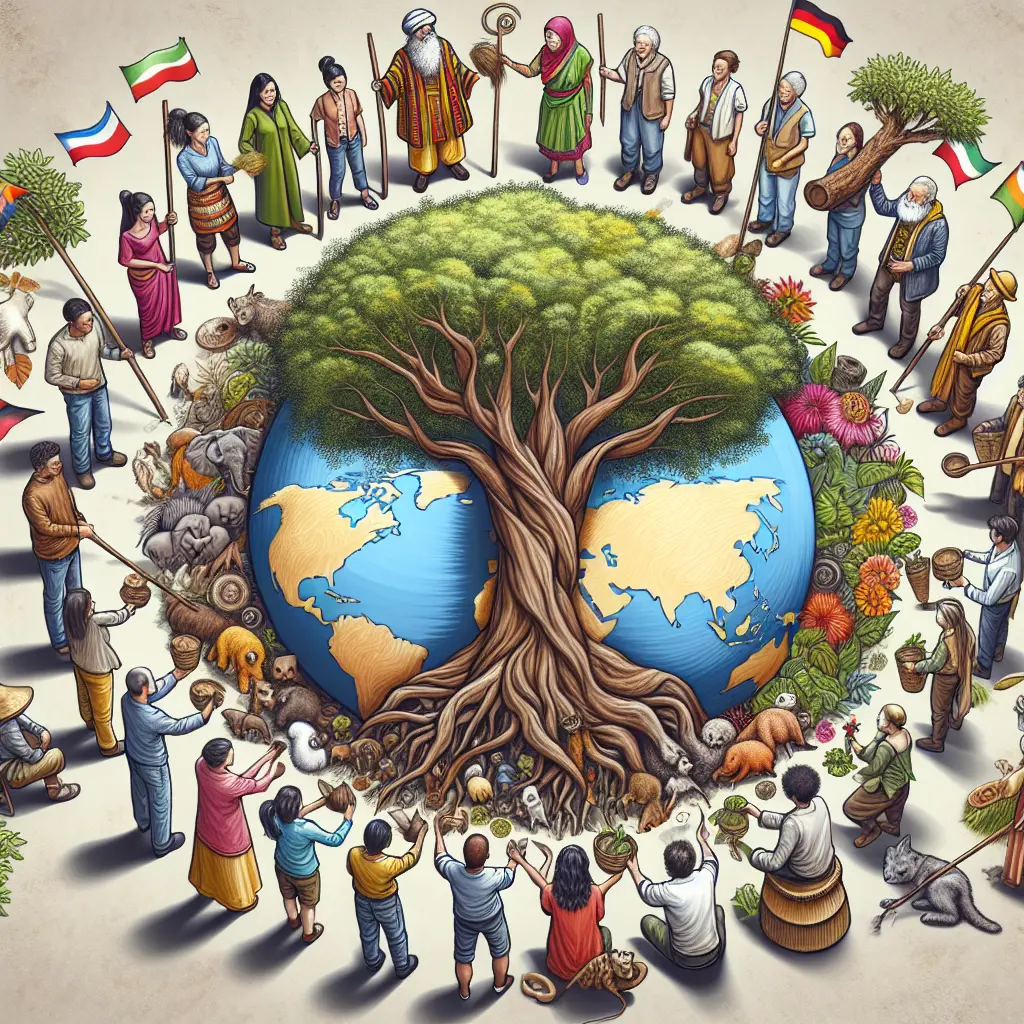
In an era where biodiversity preservation is critical for our planet's survival, indigenous knowledge emerges as a vital element in biodiversity conservation. This native wisdom, deeply rooted in cultural heritage and traditional ecological knowledge, provides sustainable conservation practices indispensable for maintaining ecological balance. Let's explore the multifaceted role of indigenous knowledge in biodiversity conservation, supported by recent developments and news.
Indigenous Knowledge as a Beacon of Hope
The significance of indigenous knowledge in combating biodiversity loss is increasingly recognized. Jane Goodall, a renowned primatologist, emphasizes that collective efforts addressing crises like climate change, biodiversity loss, and poverty can lead to global salvation (source). This perspective highlights how integrating indigenous practices can form part of holistic solutions to tackle these interconnected issues.
Indigenous communities have long relied on traditional knowledge systems to manage ecosystems sustainably. These systems offer insights into biodiversity protection and habitat preservation aligning with sustainable development goals. They provide practical conservation strategies that respect nature and cultural traditions, ensuring environmental stewardship and cultural heritage preservation.
Practical Applications in Ecosystem Management
The practical application of indigenous knowledge is evident in projects like the UK's Wilder Blean project. This initiative demonstrates how free-roaming bison can thrive in the UK and aid in wildlife restoration (source). Such projects showcase how indigenous conservation methods can be applied to modern ecosystems to promote biodiversity.
California's 30x30 Initiative aims to harmonize biodiversity with renewable energy efforts, addressing climate-driven shifts in its biodiversity (source). This initiative draws upon local knowledge and sustainable conservation strategies to address ecological challenges, serving as a model for integrating indigenous practices into broader conservation frameworks.
Indigenous Peoples and Biodiversity: A Symbiotic Relationship
The relationship between indigenous peoples and biodiversity is symbiotic, enhancing biodiversity protection through sustainable practices. Recent studies underscore the critical need for world leaders to adopt integrated approaches tackling climate change and biodiversity loss simultaneously (source). Without such collaboration, efforts to address one crisis may inadvertently hinder progress on the other.
Indigenous practices maintain ecological balance by fostering a deeper understanding of ecosystem management. They offer robust conservation strategies based on local knowledge, providing invaluable insights into habitat preservation and biodiversity management.
Challenges and Opportunities in Indigenous Conservation
Despite the proven benefits of indigenous knowledge, challenges persist. Tanzania's conservation efforts have raised concerns over violations of Maasai rights, demonstrating that biodiversity preservation does not necessitate the forced relocation of indigenous communities (source). This underscores the importance of respecting indigenous rights while implementing conservation strategies.
Additionally, the demand for metals and minerals needed for clean energy infrastructure threatens thousands of vertebrate species in biodiversity hotspots (source). This highlights the urgent need to incorporate sustainable conservation practices that minimize harm to these ecosystems.
Integrating Indigenous Knowledge with Modern Science
Integrating indigenous conservation methods with contemporary science presents a promising pathway for effective biodiversity management. Initiatives like the proposed lunar "Noah's Ark" for preserving DNA of endangered species demonstrate innovative approaches to conservation that can benefit from indigenous insights (source).
Outsourcing conservation management in Africa to NGOs has shown potential in reducing poaching and boosting tourism, albeit with risks for local communities (source). These examples illustrate the need for comprehensive frameworks promoting diversity, equity, and inclusion in global biodiversity research (source).
Moving Forward: A Call to Action
As we move forward, it is crucial to recognize the enduring relevance of traditional ecological knowledge in crafting effective conservation strategies. By integrating indigenous knowledge into modern frameworks, we can ensure a vibrant future for our planet's diverse ecosystems.
Research has even explored representing native fauna on currency to identify geographic hotspots and taxonomic patterns (source). Such studies highlight the cultural significance of biodiversity and the potential for using traditional knowledge systems to inform contemporary conservation efforts.
Conclusion: Embracing Indigenous Wisdom for a Sustainable Future
Indigenous knowledge stands as a beacon of hope in the fight against biodiversity loss, offering sustainable practices deeply rooted in cultural heritage and traditional ecological wisdom. These time-tested strategies not only provide effective conservation methods but also uphold the vital balance between preserving nature and respecting cultural traditions. By integrating indigenous practices into modern conservation efforts, we can foster a more holistic approach to addressing the intertwined crises of climate change and biodiversity loss.
Indigenous communities worldwide have long demonstrated how traditional knowledge systems can sustain ecosystems. Their practices offer invaluable insights into habitat preservation and biodiversity management, contributing significantly to sustainable development goals. Yet, challenges remain, such as respecting indigenous rights and balancing resource demands for clean energy infrastructure.
The symbiotic relationship between indigenous peoples and biodiversity underscores the necessity for inclusive conservation frameworks. Integrating indigenous knowledge with contemporary science holds promise for innovative solutions to environmental challenges. Initiatives like Africa's conservation management and modern scientific endeavors illustrate the potential for synergy between traditional wisdom and cutting-edge technology.
As we look to the future, embracing the enduring relevance of indigenous knowledge is imperative. By doing so, we can craft conservation strategies that ensure ecological balance while honoring cultural heritage. This approach enriches our understanding of biodiversity and inspires new pathways for sustainable management.
Reflect on the profound insights offered by indigenous communities and consider how we can incorporate their wisdom into our daily lives. Share your thoughts, experiences, or ideas on how indigenous knowledge has impacted your perspective on biodiversity conservation. Together, we can continue this crucial conversation and take meaningful action toward a sustainable future.
Thank you for joining me on this journey. May we all strive to protect our planet's diverse ecosystems with respect, wisdom, and collaboration.
Author: Adrianne Holt